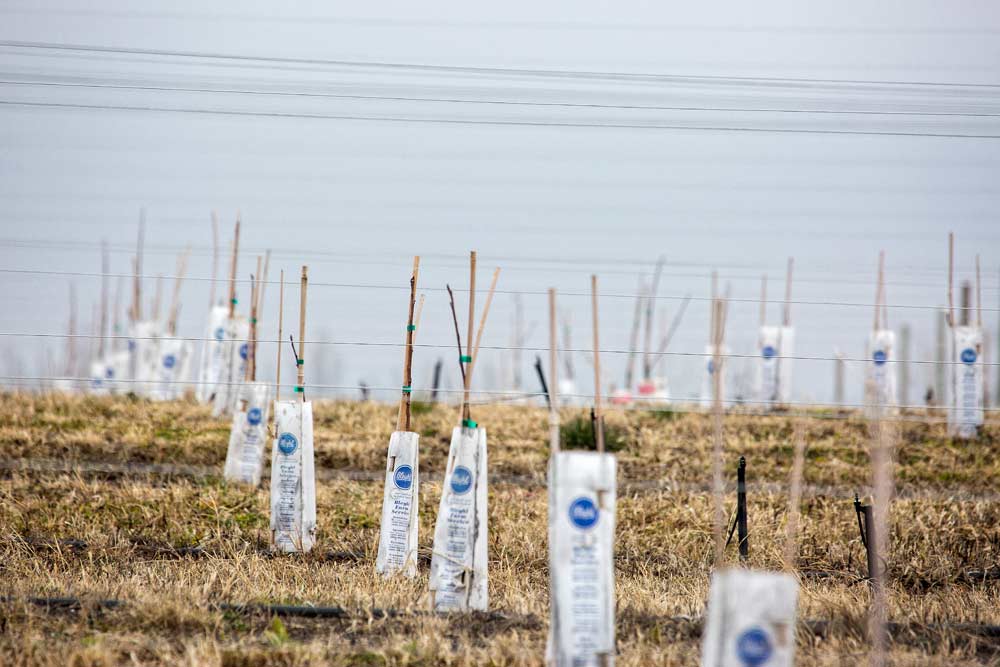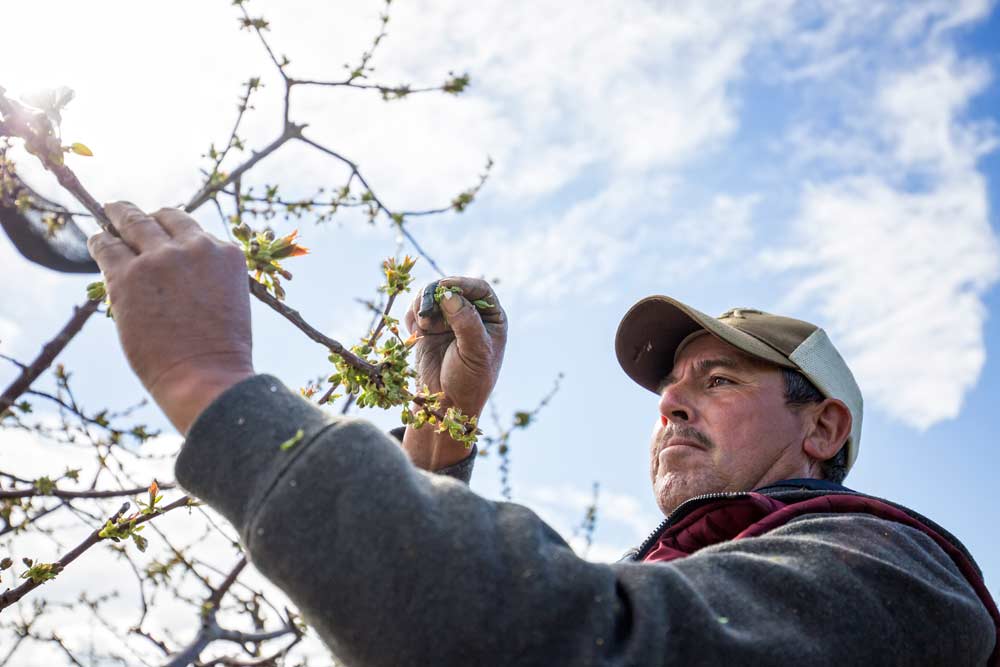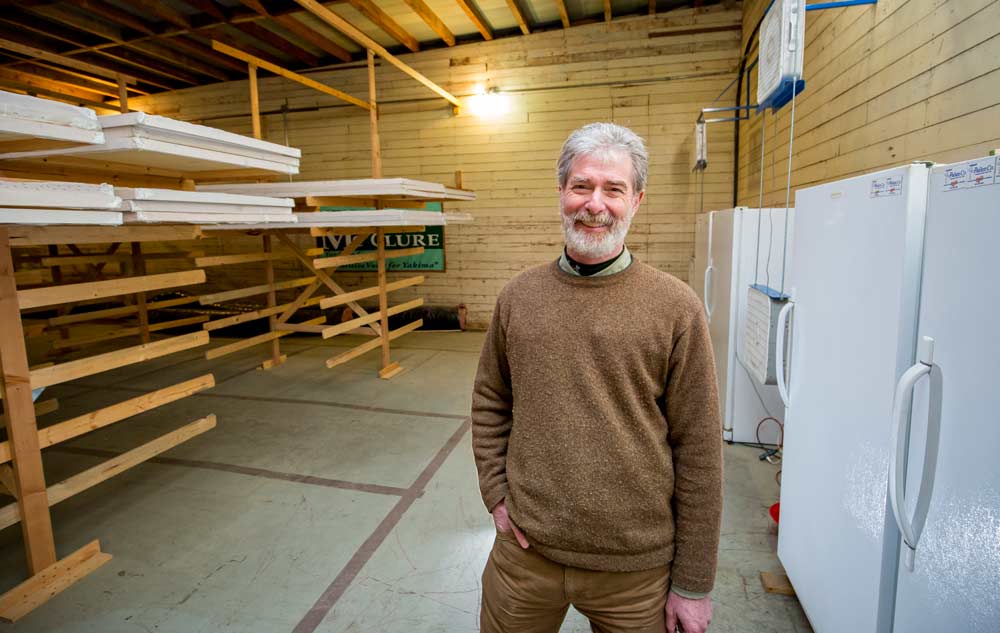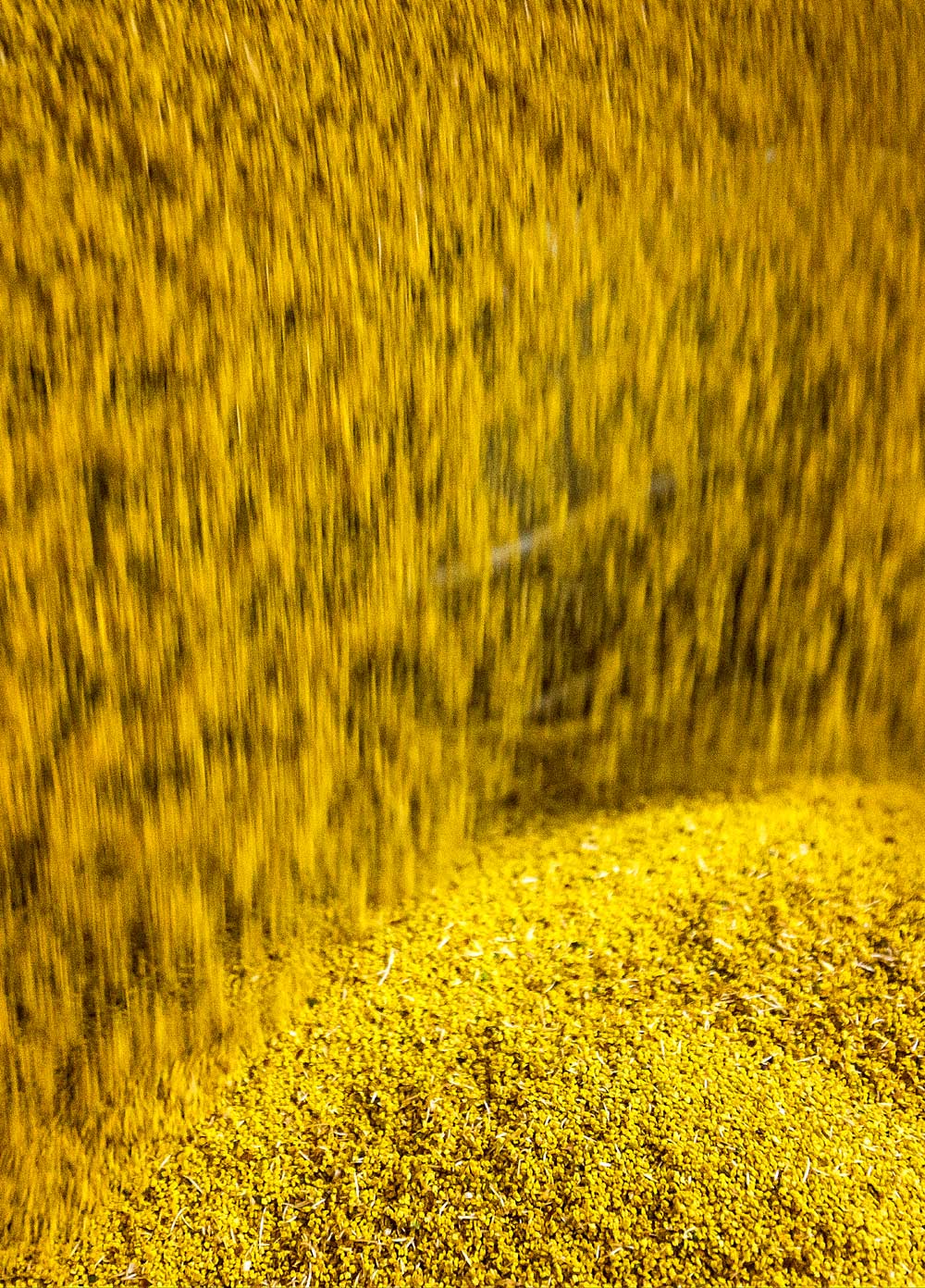
Firman Pollen Co. of Yakima, Washington, has planted about 8 acres of cherry trees in West Valley. The trees have trellises, grow tubes and irrigation.
But don’t expect any fruit.
“Everyone is going to wonder why there are no cherries on it, ever,” said Neil McClure, owner of the company.
That’s because the pollen company, one of the biggest in the Northwest, only wants pollen, which McClure and others in the fruit industry are starting to eye as a crop in and of itself, no longer just a byproduct of fruit.
Harvesting and spreading pollen as a way to supplement the job of honeybees is nothing new. Firman has been doing that since 1933, but it usually gets the pollen after thinning for optimal fruit production. That’s no longer enough to keep up with demand, McClure said.
Firman plans more acreage of pollen trees this year — 9 more acres of cherries and 2 acres of bare root pears.

Horticultural questions
McClure admits this is an experiment. “I don’t want to say we don’t know what we’re doing, but we are the beta test on this.”
All the horticulture instructions and expertise of the fruit industry is geared to produce fruit. McClure and his collaborators have yet to determine the best cultivars, training systems, irrigation plan and nutrition regimen.
“Those are compelling horticultural questions,” said Matt Whiting, a tree fruit physiologist at Washington State University’s Irrigated Agriculture Research and Extension Center in Prosser, who is collaborating with Firman.
The effort stems in part from Whiting’s recent work to develop an electrically charged pollen suspension system, to disburse pollen with a chemical sprayer and, in theory, pollinate fruit trees without honeybees.
His work has received a total of $293,000 from the Washington Tree Fruit Research Commission, some of it for addressing the very horticultural issues Firman’s new orchard poses.

Whiting plans to screen 10 different cultivars for pollen quality and volume to determine the best horticultural practices. For example, fruit production usually dampens tree vigor, thus pollen-only trees may require heavier summer pruning. Meanwhile, labor might be cheaper in the long run. Selective bloom thinning requires expensive skill, but completely stripping trees of their flowers does not.
Whiting does not suspect pollen-only orchards will typically need trellises. McClure’s orchard, which Whiting helped establish, does have trellises because it is in an extra windy area.
Pollen Pro, a smaller Yakima-area competitor, is working on its own electrostatic pollen dispenser, partnering with an Israeli company for a dry version. If either of the technologies pan out, agricultural industries will definitely need more pollen, said Scott Beddard, who owns the company with his wife, Jennifer.
However, Pollen Pro won’t plant its own trees until they see some results about Firman’s yields. Until then, there’s still plenty of custom thinning to go around. “I don’t see a need for our company to start planting our own orchards,” he said.
Export questions
The idea may be new in the United States, but not everywhere. A few companies in Europe and Chile grow their own pollen to sell and distribute.
Pollen demand is global, but exporting it may cause some regulatory headaches. Some countries require strict virus screening protocols that don’t work as well on pollen as they do plant material.
Nucleic acid samples, required for the testing, can be tough to extract from pollen, said Scott Harper, director of the Clean Plant Center Northwest, also at WSU-Prosser. Affordable tests sometimes are not sensitive enough for pollen anyway. Also, it’s unclear which viruses can be spread to other plants through pollen, even if it is infected.
Firman and Pollen Pro already export some pollen to nations like Moldova, Turkey, Chile, Mexico and South Korea as a product gleaned from custom-thinning fruit trees. They both used to ship more to Europe until about five years ago, when changes in the interpretation of regulations shut that down.
McClure is working with Harper and the U.S. Department of Agriculture to come up with an ongoing way to certify an orchard — and therefore its pollen — as virus-free that would satisfy the restricting countries.
Either domestically or internationally, McClure and his backers believe the fruit industry is poised for a pollination sea change.
“This is not like whitening toothpaste. This is like not having to use toothpaste ever again,” McClure said. •
—by Ross Courtney







Leave A Comment